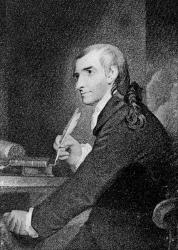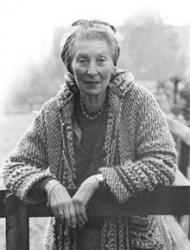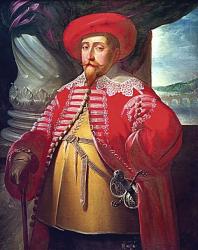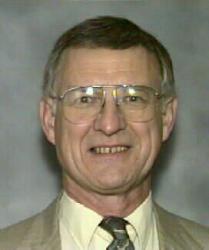
1624 - 1677 Person Name: J. Scheffler, 1624-1677 Author of "O God, of good the unfathomed Sea!" in Methodist Hymn and Tune Book Pen name of Johann Scheffler
=======================================
Angelus Silesius, born in Selisia, in 1624, was the son of a Polish nobleman, and his true name was John Scheffler; but he adopted the name Angelus from a Spanish mystic of the 16th century--John ab Angelis--and added the name Silesius, because of his own country. He studied medicine, and obtained his degree of M.D. at Padua. While physician to the Duke Sylvius Nimrod--from 1649 to 1652--he had contention with the Lutheran clergy, and in 1653 entered the Romish Church. Subsequently he was physician to the Emperor Ferdinand III., but at length entered the priesthood and retired to the Jesuit monastery of S. Matthias, in Breslau, where he died in 1677. His hymns were mostly written before he joined the Romish Church, and were intended for private devotion; some, however, have been very acceptable for public use. "Several of them are among the deepest and most tender in the German language, and breathe a glowing love to the Saviour."
--Annotations of the Hymnal, Charles Hutchins, M.A. 1872.
=================================================
Scheffler, Johann (Angelus Silesius), was born in 1624 at Breslau in Silesia. His father, Stanislaus Scheffler, was a member of the Polish nobility, but had been forced to leave his fatherland on account of his adherence to Lutheranism, and had then settled in Breslau. The son was thus educated as a strict Lutheran. After passing through the St. Elisabeth's Gymnasium at Breslau, he matriculated at the University of Strassburg, on May 4, 1643, as a student of medicine. In the next year he went to Leyden, and in 1647 to Padua, where he graduated PH. D. and M.D. on July 9, 1648. Thereafter he returned to Silesia, and, on Nov. 3, 1649, was appointed private physician, at Oels, to Duke Sylvius Nimrod of Württemberg-Oels. The Duke was a staunch Lutheran, and his court preacher, Christoph Freitag, administered the ecclesiastical affairs of the district according to the strictest Lutheran churchly orthodoxy. Scheffler, who in Hollaud had become acquainted with the writings of Jakob Böhme, and had become a personal friend of Abraham von Frankenberg, the editor of Böhme's works, soon found that the spiritual atmosphere of Oels did not suit him. His own leanings at this time were distinctly to Mysticism and Separatism. He was at no pains to conceal his sentiments, and withdrew himself from public worship, from confession, and from the Holy Communion. When he wished to publish his poems, and submitted them for this purpose to Freitag, he was refused permission to print them on the ground of their mystical tendencies. He resigned his post in the end of 1652, and went to Breslau. Here he became acquainted with the Jesuits, who in that place were earnest students of the mystical works of Tauler (q.v.), and through them was introduced to the study of the mediaeval mystics of the Roman Catholic Church.
On June 12, 1653, he was formally received into the Roman Catholic communion, and at his confirmation on that day at St. Matthias's Church in Breslau, he took the name of Angelus, probably after a Spanish mystic of the 16th cent, named John ab Angelis.* On March 24, 1654, the Emperor Ferdinand III. conferred on him the title of Imperial Court Physician, but this title was purely honorary, and Scheffler remained still at Breslau. On Feb. 27,1661, he entered the order of St. Francis; on May 21, 1661, was ordained priest at Neisse in Silesia, and in 1664 was appointed Rath and Hofmarschall to his friend Sebastian von Rostock, the newly created Prince Bishop of Breslau. After the Bishop's death in 1671 Scheffler retired to the monastery of St. Matthias in Breslau, where he died July 9, 1677, from a wasting sickness, during which he used this characteristic prayer, "Jesus and Christ, God and Man, Bridegroom and Brother, Peace and Joy, Sweetness and Pleasure, Refuge and Redemption, Heaven and Earth, Eternity and Time, Love and All, receive my soul."
Of Scheffler, as a Convert and as a Controversialist, not much need be said. He certainly became more Roman than the Romans; and in his more than 50 controversial tractates, shows little of the sweetness and repose for which some have thought that he left the Lutheran church. In his Ecclesiologia, published at Glatz in 1677 [British Museum has the 2nd edition, published at Oberammergau and Kempten in 1735], he collected 39 of these treatises, of which e.g. No. 34 is entitled, "The Lutheran and Calvinistic Idol of the Understanding exhibited, laid bare, as well as the Likeness of the True God. In which also, at the same time, the attacks aud objections of adversaries are repelled. 1 Cor. viii. 4, Idolum nihil est, an idol is nothing."
At an early age Scheffler had begun to write poems, and some of these occasional pieces were printed in 1641 and 1642. His most famous non-hymnological work is his Geistreiche Sinn- und Schlussreime, &c, published at Vienna in 1657, but better known by the title prefixed in the 2nd edition published at Glatz in 1675, viz. the Cherubinischer Wandersmann, [Both eds. in the British Museum]….
Scheffler's latest poetical work was the Sinnliche Beschreibung der vier letzten Dinge, zu heilsamen Schröken und Auffmunterung aller Menschen inn Druck gegeben. Mit der himmlischen Procession vermehrt, &c. Schweidnitz, 1675. [British Museum]…
Scheffler's most important hymnological work is his Heilige Seelenlust, oder geistliche Hirten-Lieder, der in ihren Jesum verliebten Psyche, gesungen von Johann Angelo Silesio, und von Herrn Georgio Josepho mit aussbündig schönen Melodeyen geziert, &c.
Of this the first edition appeared at Breslau, apparently in 1657, in three books, with Hymns 1-123, and a fourth—-separately paged—-book, with 32 hymns, apparently also at Breslau, 1657. In the 2nd ed., pub. at Breslau in 1668, the paging and numbering are consecutive; and a fifth book is added, with Hymns 166-205. [Both eds. in Royal Library, Breslau; 2nd ed. in British Museum] The first three books form a cycle of hymns, principally on the person and work of Our Lord, arranged according to the Christian Year, from Advent to Whitsuntide, and seem mostly to have been written before Scheffler left the Lutheran church. Those of the fourth book were probably written 1653 to 1656, and those of the fifth book between 1656 and 1668. In the first three books he is most clearly under the influence of his predecessors. That is, so far as the style and form are concerned, he was greatly influenced by the Pastorals of the Nürnberg Pegnitz Shepherds, and of Friedrich von Spee (q.v.) ; and in the substance of his poems—their longings for mystical union with Christ, and their clinging love to the Saviour—he was influenced on the one side by Böhme, and on the other by the earnest inner religious life which he had found in Holland. In his later hymns the tone is more manly, and the defects and excesses of his earlier style have, in great measure, disappeared.
Scheffler's hymns were gladly received by the Lutheran Church as a welcome addition to the store of "Jesus Hymns," but many long passed current as anonymous; the I. A., for Johann Angelus, being often interpreted as Incerti Autoris, and vice versa. Through the Nürnberg Gesang-Buch, 1676; Freylinghausen's Gesang-Buch 1704 and 1714; Porst's Gesang-Buch, 1713; and Burg's Gesang-Buch, Breslau, 1746, a large number came into use among the Lutherans, more indeed than among the Roman Catholics. They were great favourites among the Moravians, after Zinzendorf had included 79 of them in his Christ-Catholisches Singe-und Bet-Büchlen, 1727 ; and, unfortunately, preciscly the worst were selected for imitation, so that Scheffler has the doubtful honour of being the model of tli8 spiritual-fleshly productions which disfigured the Moravian hymn-books between 1740 and 1755.
Judging Scheffler's hymns as a whole one must give them a very high place in German hymnody. Only a small proportion of the hymns bear a distinctively Roman Catholic character. Of the rest, after setting on one side those in which Christ is set forth as the Bridegroom of the soul, with an excessive use of the imagery of Canticles; and those disfigured by the mannerisms of the Pastoral School, there remain a large number which are hymns of the first rank. These finer hymns are the work of a true poet, almost perfect in style and in beauty of rhythm, concise and profound; the fruits indeed it may be said of Mysticism, but of Mysticism chastened and kept in bounds by deep reverence and by a true and fervent love to the Saviour. Scheffler holds a high place in the first rank of German sacred poets, and is much the finest of the Post-Reformation Roman Catholic hymn-writers.
A number of Scheffler's hymns are translations from the Latin…which have passed into English, are as follows.
i. Ach Gott, was hat vor Herrlichkeit. God's Majesty. First published as No. 110 in Bk. iii., 1657, of his Heilige Seelenlust , in 6 st. of 8 1., entitled, "She [the soul] rejoices herself on the glory of Jesus." In the Herrnhut Gesang-Buch, 1735, No. 67. The translation in common use is:—
Thy Majesty, how vast it is. This is a free translation of st. i.-iv. as part of No. 189 in the Moravian Hymn Book, 1789 (1886, No. 225).
Another tr. is: "My God! how vast a Glory has," as No. 310 in the Moravian Hymn Book, pt. ii., 1743.
ii. Der edle Schäfer, Gottes Sohn. The Good Shepherd . Translated as:—
The true good Shepherd, God's own Son. This is a translation of st. i., v., by P. H. Molther, as No. 18 in the Moravian Hymn Book, 1789. In the 1826 and later eds. (1886, No. 22) it begins, "Christ the good Shepherd.”
iii. Grosser König, dem ich diene. Love to God. First published as No. 161 in Bk. v., 1668, of his Heilige Seelenlust in 10 stanzas of 8 lines, entitled, "She presents to her Beloved her heart in diverse fashion as a morning gift." The translation in common use is:—
Make my heart a garden fair. This is a tr. of st. viii., as st. ii. of No. 439 in the Moravian Hymn Book, 1789.
Other trs. are: (1) "Lord, I come, Thy grace adoring," by J. D. Burns, 1869, p. 227. (2) "Almighty King, Eternal Sire," by G. Moultrie, in his Espousals of S. Dorothea, 1870, p. 69.
iv. Jesus ist der schönste Nam'. Love to Christ. First published as No. 35 in Bk. i., 1657, of his Heilige Seelenlust in 9 stanzas of 6 lines, entitled, "She praises the excellency of the Name of Jesus." Tr. as:—
Jesus is the highest name. This is a good tr. of st. i., ii., viii., ix., by A. T. Russell, as No. 69 in his Psalms & Hymns, 185. Another tr. is: "Jesus is the sweetest Name, Unto mortals," by J. C. Earle, in O. Shipley's Annus Sanctus, 1884, pt. ii. p. 43.
v. Keine Schönheit hat die Welt. Love to Christ. A beautiful hymn on Christ in Nature. First published as No. 109 in Bk. iii., 1657, of his Heilige Seelenlust, in 16 stanzas of 4 lines, entitled, "She ponders His charmingness to the creatures."
The trs. in common use are :—
1. Earth has nothing sweet or fair. This is a very good translation, omitting st. vi.—viii., x., xi., by Miss Cox in her Sacred Hymns from the German, 1841, p. 165
2. Nothing fair on earth I see. This is a somewhat free tr. of st. i.-v., ix., xii.-xiv., xvi., by Miss Winkworth in her Lyra Germanica, 1st Ser., 1855, p. 48; repeated, abridged and altered, in her Chorale Book for England, 1863, No. 158.
Other translations are : (l) All the beauty we can find," as No. 457, in pt. i. of the Moravian Hymn Book 1754. (2) "Would you view the glorious face," in J. A. Latrobe's Psalms & Hymns ., 1841, No. 437. (3) "Whate'er of beauty I behold," by Lady E. Fortescue, 1843, p. 35. (4) " Earth has nothing bright for me," by Miss Manington, 1863, p. 168. (5) "The world with broadcast beauties sown," by E. Massie, 1867, p. 14.
vi. Morgenstern der finstern Nacht. Love to Christ. First published as No. 26 in Bk. i., 1657, of his Heilige Seelenlust, in 6 st. of 5 1., entitled, "She wishes to have the little Jesus as the true Morning Star in the heaven of her heart." Another tr. is: "Morning Star in darksome night”, by Miss Winkworth, 1869, p. 250.
vii. Nun nimm mein Herz, und alles was ich bin. Self-surrender to Christ. First published as No. 102 in Bk. iii., 1657, of his Heilige Seelenlust, in 4 stanzas of 6 lines, entitled, "She gives herself to her Bridegroom." The translation in common use is:—
O take my heart, and whatsoe'er is mine. This is a tr. of st. i., iv., by F. W. Foster, as No. 267 in the Moravian Hymn Book, 1789.
Another tr. is: "Now take my heart and all that is in me," by Miss Winkworth, 1858, p. 98.
viii. Wollt ihr den Herren finden. Seeking of Christ. First published in Bk. iv., 1657, of his Heilige Seelenlust, entitled, "She gives notice where Jesus is to be found.”
Translated as:—
If you would find the Saviour. This is a free version, condensing st. iii., iv., as st. iii. in the Moravian Hymn Book, 1754, pt. i., No. 657. Included, greatly altered, and beginning, "Would you find the Saviour?" in J. A. Latrobe's Psalms & Hymns, 1841 and 1852.
ix. Wo willt du hin, weils Abend ist. Evening. A beautiful hymn founded on the Narrative of Christ at Emmaus.
The translation in common use is:—
Where wilt Thou go! since night draws near. By A. Crull, in full, as No. 93 in the Ohio Lutheran Hymnal 1880.
Another translation is: "Where wilt Thou go? the eve draws nigh," by Miss Manington; 1863, p. 154.
Other hymns by Scheffler which have been rendered into English are:—
x. Ach, sagt mir nicht von Gold und Schätzen. Love to Christ. The translations are (1) "Tell me no more of golden treasures," in the Supplement to German Psalmody, ed. 1765, p. 53; and Select Hymns from German Psalmody , Tranquebar, 1754, p. 84. (2) "0 tell me not of glitt'ring treasure," by Dr. H. Mills, 1845, p. 75. (3) "0 tell me not of gold and treasure," by Miss Burlingham, in the British Herald, August, 1865, p. 121, repeated as "Ah, tell me not," &c, in Reid's Praise Book, 1872.
xi. Ach, was steh'st du auf der Au. Love to Christ. This form is tr. as "Jesus, end of my desires."
xii. ‘Auf, auf, 0 Seel', auf, auf, zum Streit. Christian Warfare. The translations are (1) "Up! Christian man, and join the fight," by Miss Manington, 1863, p. 44. (2) "Up, Christian! gird thee to the strife," by Miss Burlingham, in the British Herald, July, 1865, p. 106.
xiii, Dein' eigne Liebe zwinget mich. Love to Christ. Tr. as, "Thine own love doth me constrain," by J. Kelly, in the Family Treasury, 1878, p. 716.
xiv. Die Sonne kommt heran. Morning. Translated as "The sun will soon appear," by J. Kelly, in the Family Trea¬sury, 1878, p. 716.
xv. Ihr Engel, die das höchste Gut. Love to Christ. This form is tr. as, "Ye Seraphim, who prostrate fall," as No. 649 in pt. i. of the Moravian Hymn Book, 1754.
xvi. Jesu, ew'ge Sonne. Love to Christ. Translated as "Christ the spring of endless joys," by J. Kelly, in the Family Treasury, 1878, p. 716.
xvii. Kommt, meine Freund, und höret an. Eternal Life. Tr. as: "Come hither, friends, and hear me say," by J. Kelly, in the Family Treasury , 1879, p. 271.
xviii. Meine Seele willt du ruh'n. Love to God. This form is tr. as "O my soul, desir'st thou rest." In the Supplement to German Psalmody, ed. 1765, p. 56.
xix. Mein Lieb ist mir und ich bin ihm. Love to Christ. This is tr. as, "My Friend's to me, and I'm to Him," as No; 467 in pt. i. of the Moravian Hymn Book, 1754.
xx. 0 du allerliebster Gott. Christ in Gethsemane. This form is tr. as "Jesus, O my Lord and God," by J. C. Earle, in O. Shipley's Annus Sanctus, 1884, p. 73.
xxi. Schau', Braut, wie hängt dein Bräutigam. Passiontide. Tr. as, "O Bride! behold thy Bridegroom hangs," as No. 460 in pt. i. of the Moravian Hymn Book, 1754.
xxii. Tritt hin, o Seel', und dank' dem Herrn. Thanksgiving. Tr. as "Come, O my soul, with thankful voice," by Dr. G. Walker, 1860, p. 70.
xxiii. Weil ich schon seh' die gold'nen Wangen. Morning. The trs. are (1) "Because I see red tints adorning," by Miss Manington, 1863, p. 119. (2) "I see the golden light of morn," in the Family Treasury, 1877, p. 603.
xxiv. Wie lieblich sind die Wohnungen. Eternal Life. Translated as "How lovely are the mansions fair," by J. Kelly, in the Family Treasury, 1879, p. 270.
xxv. Zeuch mich nach dir, so laufen wir. Love to Christ. Translated as "Draw us to Thee, then will we flee," as No. 137 in pt. i. of the Moravian Hymn Book, 1754.
It may be added that in some English books Scheffler appears as a composer of hymn-tunes. This is however a mistake, for the melodies in the Heilige Seelenlust are, as the title distinctly says, by Georg Joseph, a musician living at that time in Breslau. [Rev. James Mearns, M.A.]
* In his later writings he styled himself Johann Angelus Silesius, adding this designation—the Silesian—in order to distinguish himself from the Lutheran theologian, Johann Angelus, of Darmstadt.
--Excerpts from John Julian, Dictionary of Hymnology (1907)
Angelus Silesius


 My Starred Hymns
My Starred Hymns








